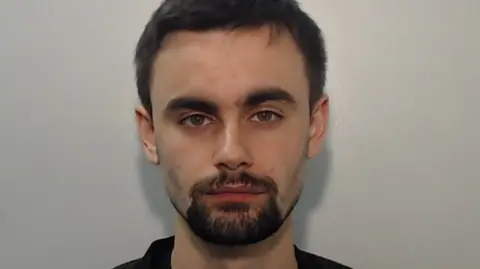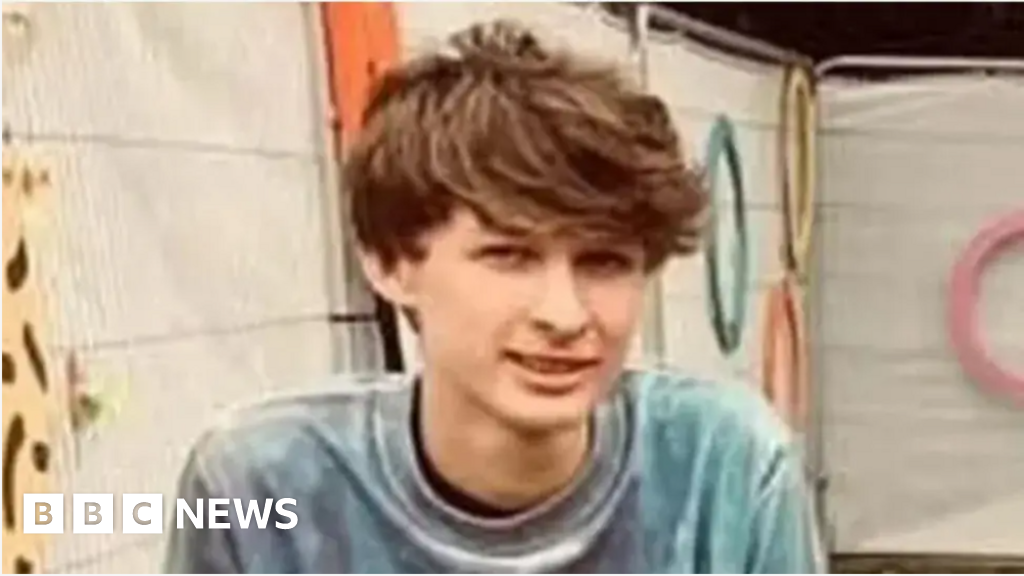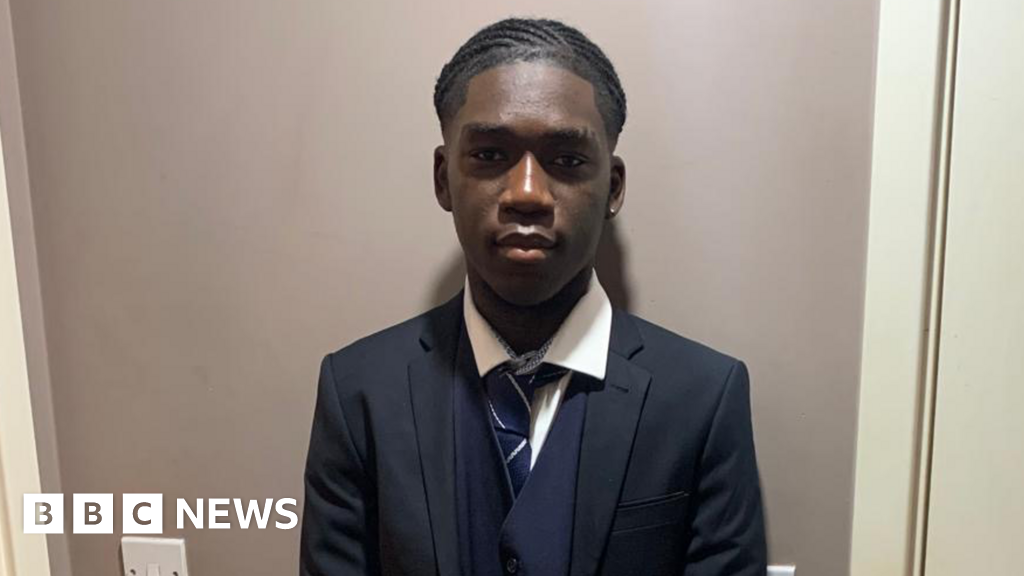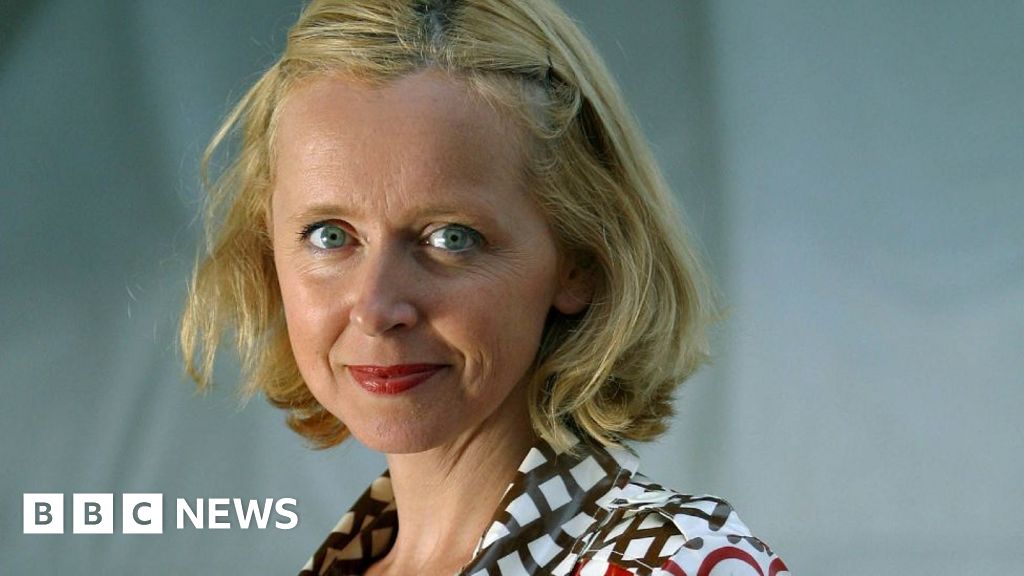
 GMP
GMP
Hugh Nelson made the images to order for people in online chatrooms
A student who used AI technology "in the worst possible way" to turn photographs of real children into "depraved" indecent images has been jailed for 18 years.
Hugh Nelson, 27, from Bolton, used a computer programme to generate the images which he shared and sold online to other paedophiles over an 18-month period, making £5,000.
Bolton Crown Court heard the graphic design student, who pleaded guilty to 16 child sexual abuse offences, also encouraged the rape of children in online chatrooms.
Detective Chief Inspector Jen Tattersall, of Greater Manchester Police, said Nelson was "an extremely dangerous man who thought he could get away with what he was doing by using modern technology".
Warning: This story contains upsetting details of Nelson's offences
Nelson pleaded guilty to various counts of making, possessing and distributing indecent images of children and three counts of encouraging the rape of a child under the age of 13.
He also admitted to a count of attempting to cause a child under 16 to engage in sexual activity and one of publishing an obscene article.
Nelson, of Briggsfold Road, was sentenced to 18 years in jail, including six years on licence, and was placed on the sex offenders register.
Man who made 'depraved' child images with AI jailed for 18 years
Nelson's parents sat in the court's public gallery as he appeared via video link from HMP Forest Bank.
His mother wept into the crook of her arm as her son was jailed.
"There appears to have been no limit to the depth of depravity exhibited in the images that you were prepared to create and to distribute to others," Judge Martin Walsh said as he passed the sentence.
"The nature and content of the communications which you entered into is utterly chilling."
Jeanette Smith, from the Crown Prosecution Service, warned that those thinking of using AI "in the worst possible way" should be "aware that the law applies equally to real indecent photographs and AI or computer-generated images of children".
Took commissions
Nelson used a computer programme to create the images and sold or exchanged them in an encrypted chatroom for paedophiles.
The court heard he took requests from people who wanted him to create explicit images of children being harmed both sexually and physically.
His offences were uncovered when he began speaking to an undercover police officer in May last year.
Nelson told the officer he took commissions from customers for the images with some requests coming from France, Italy and the United States.
Prosecutor David Toal said: "The defendant said he had over 60 characters in total, ranging from six months to middle-aged, and he charged £80 to create a new character."
Nelson was arrested at his home in Egerton in June 2023 and his devices were seized and examined.
He told officers his offending "had got out of control" after he had met other paedophiles online.
His defence lawyer Bob Elias said he was a "lonely, socially isolated" man who had "plunged down the rabbit hole to this sort of fantasy life and became completely engrossed in it".
'Disturbingly life-like'
Derek Ray-Hill, of the Internet Watch Foundation, said: “Technology is now enabling previously unthought of violations of innocent children.
"We are discovering more and more synthetic and AI images of child sexual abuse and they can be disturbingly life-like.
“That Nelson profited from making this material to order after clients sent him images to manipulate is on another horrifying level.
"I hope this drives home the message. This material, even synthetic versions of it, is criminal.
"If you make or possess it, you are breaking the law."
Additional reporting by PA Media.
If you have been affected by any of the issues raised in this article, support is available via the BBC Action Line.

 3 weeks ago
9
3 weeks ago
9









